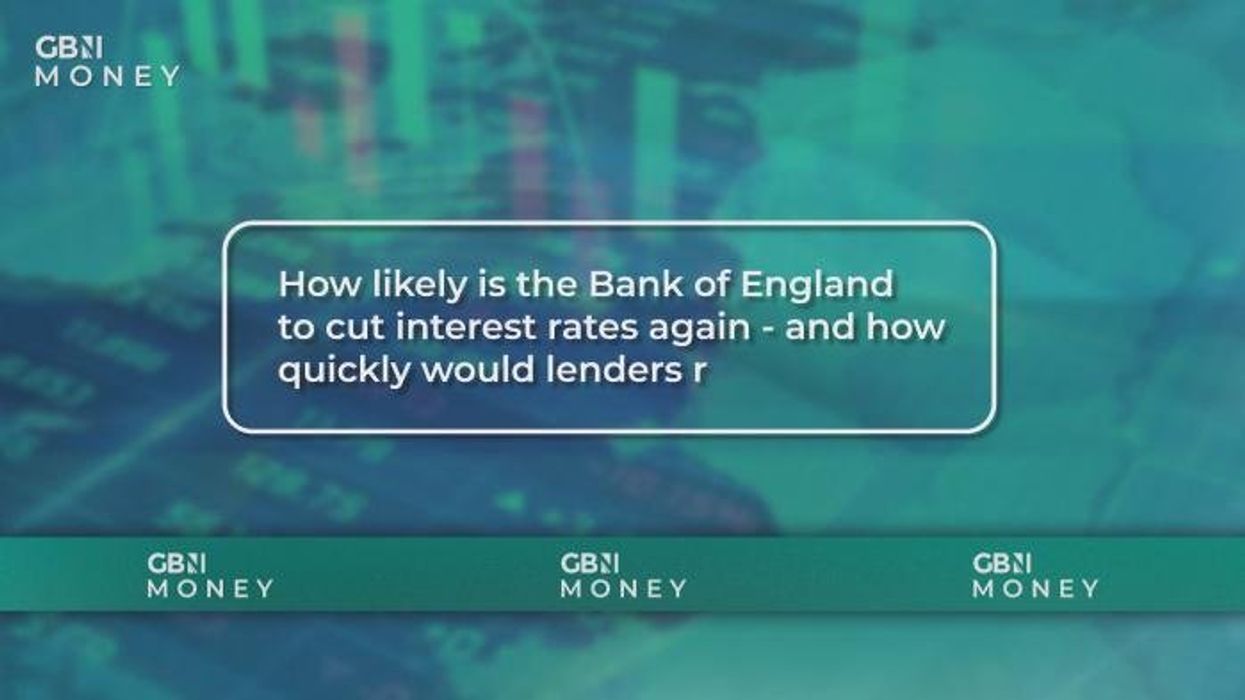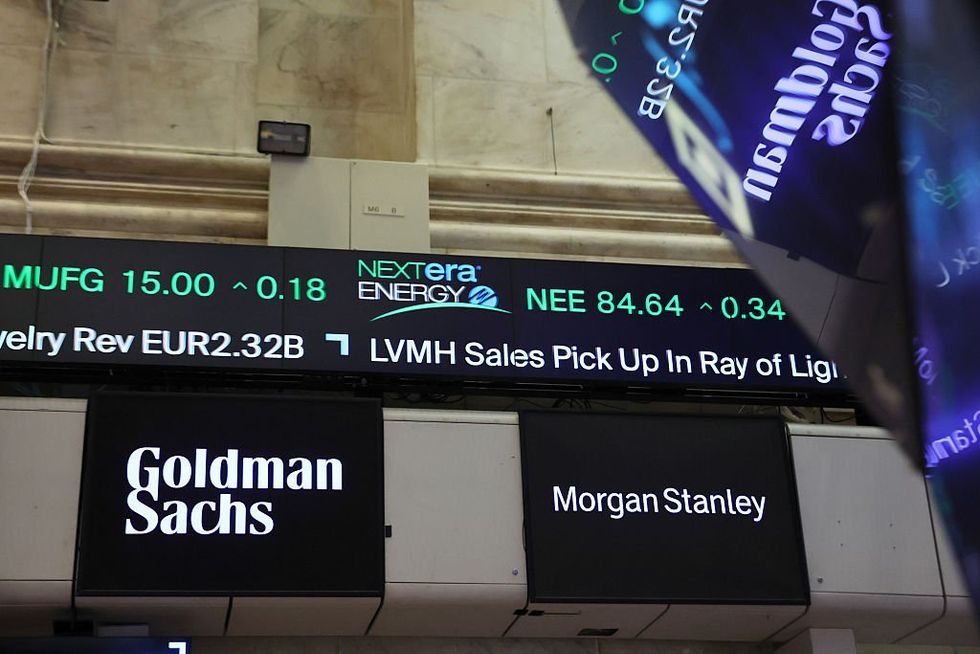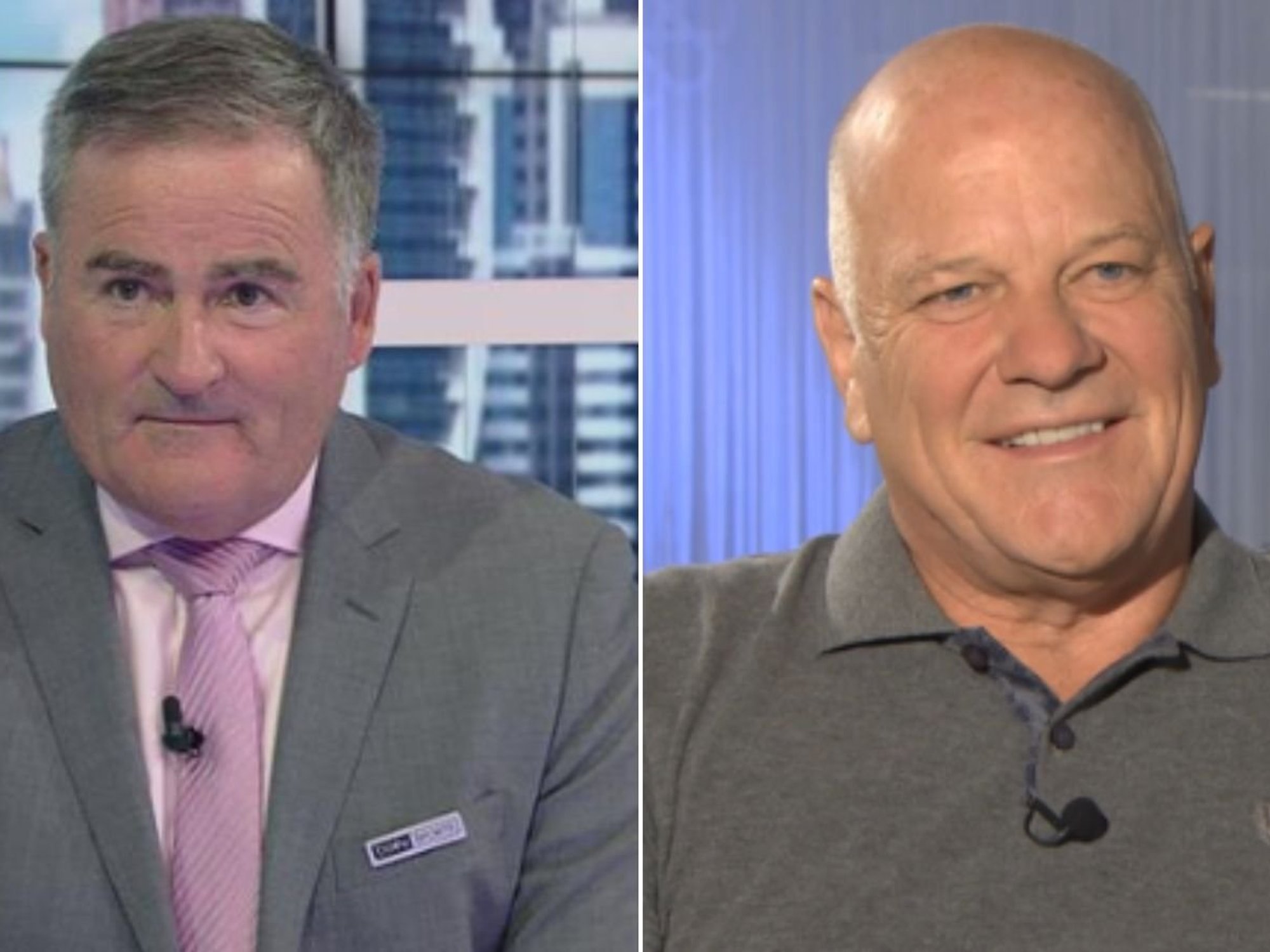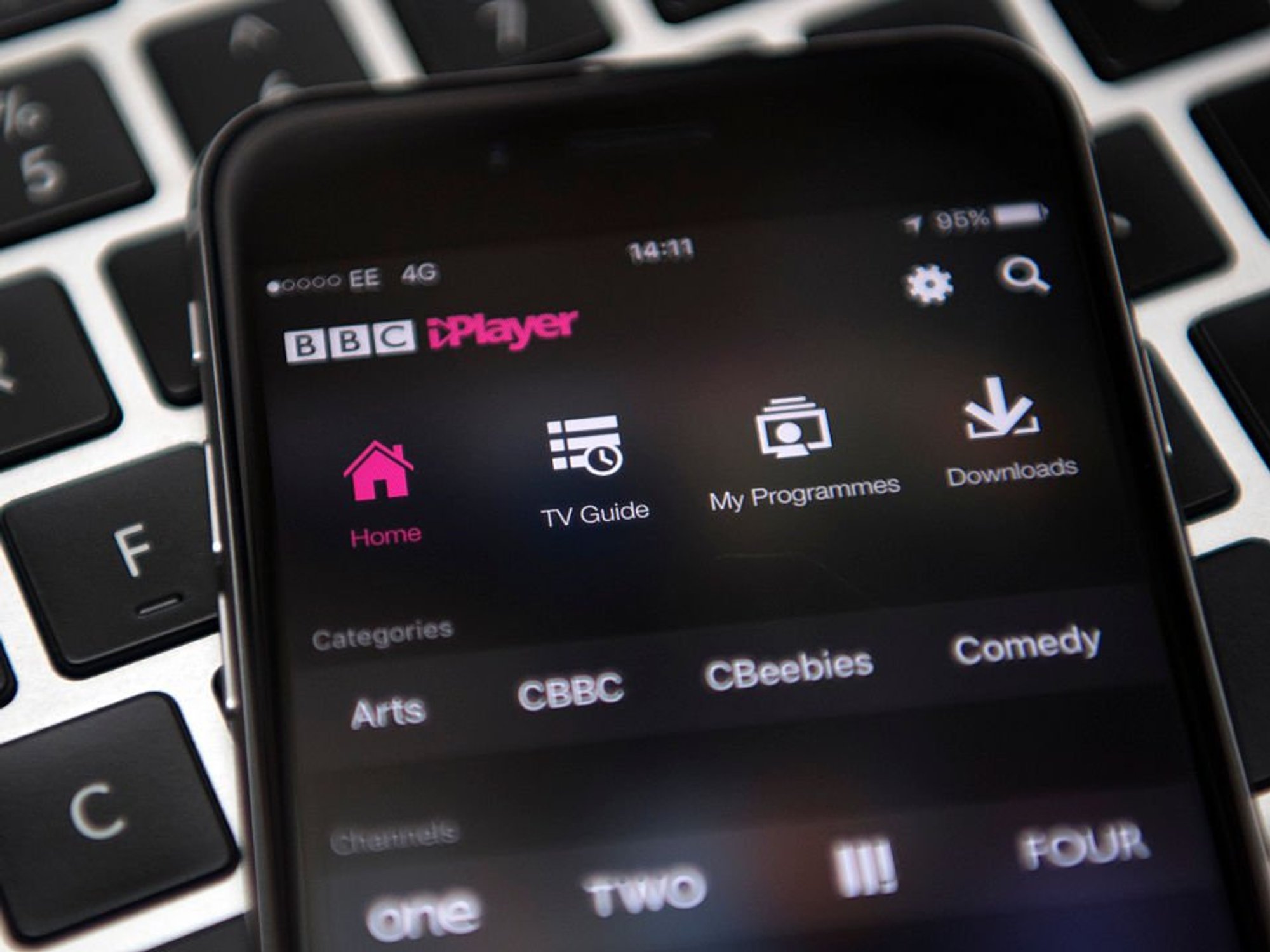Bank of England 'deeply divided' as interest rates expected to remain at four percent

How likely is the Bank of England to cut interest rates again? |
GB News

MPC set to hold borrowing costs at four per cent amid warnings of deep divisions
Don't Miss
Most Read
The Bank of England faces a critical test on Thursday as policymakers prepare for a tense vote on interest rates amid signs of sharp divisions over the path ahead.
Borrowing costs are widely expected to remain unchanged at four per cent, but senior economists say members of the nine-strong Monetary Policy Committee (MPC) appear increasingly split over inflation risks and the timing of any rate cuts.
James Smith, UK developed market economist at ING, said: "Inflation has almost certainly peaked."
He added that food price inflation, a key concern for the Bank this summer, eased in September and is now running around half a percentage point below official forecasts.
TRENDING
Stories
Videos
Your Say
Mr Smith said: "This all comes at a time when the Bank is visibly divided on how problematic inflation really is."
Most analysts expect the committee to hold rates steady, but major banks Barclays and Goldman Sachs have broken from that view and forecast a quarter-point reduction to 3.75 per cent.
Jack Meaning, chief UK economist at Barclays, believes softer economic data will push policymakers towards an early move.
"We think the recent inflation and wage figures are sufficient to persuade some committee members that inflation pressures are easing."
Goldman Sachs has issued a similar projection.
The American investment bank argues that recent economic indicators justify immediate action, marking a notable shift from the broader consensus that the Bank would wait longer.

Bank of England braces for a pivotal rate vote Thursday, with policymakers deeply split on the outlook
|GETTY
Latest official figures showed Consumer Prices Index (CPI) inflation held at 3.8 per cent in September, matching July and August.
Economists had expected a rise to four per cent, but food prices weakened further instead.
Despite these signals, ING expects the Bank to remain cautious.
Mr Smith said the committee is "deeply divided" but likely to wait as it weighs persistent inflation risks.
Supporters of a rate cut say moderating price pressures and weakening wage growth strengthen the case for easing policy now.
However, whether that argument will be enough to secure a shift remains uncertain.
LATEST DEVELOPMENTS

Goldman Sachs echoes the call for swift action, citing fresh data and breaking from consensus expectations
|GETTY
The upcoming autumn Budget on November 26 is also shaping the Bank's approach.
Sterling dropped sharply in the wake of Chancellor Rachel Reeves's cautionary speech on Tuesday, which braced Britain for potential tax rises - despite assurances given in the 2024 election campaign.
Under established procedures, the Bank cannot respond to Government policy until measures are formally announced.
Mr Smith said this means a December rate cut is "becoming more likely", particularly if the Budget includes significant revenue-raising steps.
This adds a further complication to the Bank's deliberations.
Officials must balance current economic signals with the possibility of fiscal changes that could significantly alter the inflation outlook.

Millions of households face moving off fixed-rate deals onto higher borrowing costs
| GETTYThe emerging policy debate marks a sharp change from expectations seen only weeks ago.
Many analysts had dismissed the prospect of a November cut, and some predicted elevated rates could persist until 2026.
Such forecasts have caused concern among homeowners preparing to refinance mortgages.
Millions of households face moving off fixed-rate deals onto higher borrowing costs.
Any decision to cut sooner than expected would offer relief to borrowers, though the Bank has repeatedly stressed that inflation must be firmly under control before easing.
For now, the majority view in markets points to a hold this month with potential movement in December.
Signs of weakening inflation have provided momentum for those calling for earlier action, but the Bank's history of caution remains a powerful factor.
More From GB News










